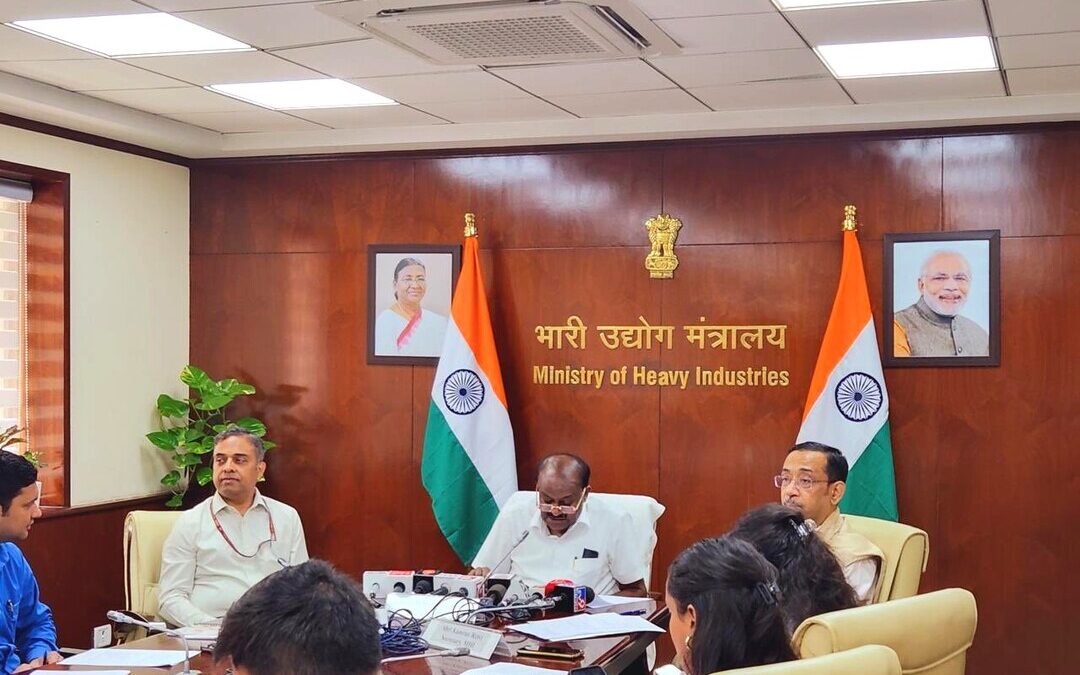India Unveils Incentive Scheme to Boost Domestic Electric Car Manufacturing
India launches incentive scheme to attract global EV makers, boost local manufacturing and cut import duties.
The government of India released detailed guidelines on Monday for a new policy aimed at attracting global electric vehicle manufacturers to establish domestic production facilities.
According to the Ministry of Heavy Industries, the “Scheme to Promote Manufacturing of Electric Passenger Cars in India” provides incentives, including reduced customs duties for approved applicants and sets minimum investment thresholds.
The move is part of a broader push to position the country as a leading hub for sustainable mobility and automotive innovation, strengthening the “Make in India” and “Aatmanirbhar Bharat” initiatives.
Key Investment and Import Provisions
Under the scheme, approved companies must commit to a minimum investment of ₹4,150 crore (about $500 million) within a three-year window.
In return, they will be allowed to import up to 8,000 completely built electric four-wheelers annually at a reduced customs duty of 15 percent, provided the vehicles have a minimum cost, insurance and freight value of $35,000.
The concessional duty will be applicable for five years from the date of application approval, with carryover of unused annual import limits permitted. However, total duty foregone under the scheme will be capped at the lower of ₹6,484 crore or the actual investment made by the applicant.
Domestic Value Addition Targets
To encourage localization, the scheme mandates participating companies to achieve a minimum domestic value addition of 25 percent within three years and 50 percent within five years of receiving approval.
The DVA certification will be overseen by testing agencies approved by the MHI and evaluated in line with the existing production-linked incentive auto scheme standards.
Investments must be directed towards manufacturing infrastructure, including plants, machinery, engineering and R&D as well as limited supporting infrastructure.
Land costs will be excluded from investment calculations, although associated plant buildings may be counted up to 10 percent of the total.
Bank Guarantee and Compliance Safeguards
To ensure compliance, applicants will be required to furnish a bank guarantee equivalent to the higher of the duty foregone or ₹4,150 crore.
The guarantee must remain valid throughout the scheme’s tenure, serving as a safeguard for the government in the event of non-compliance.
To qualify, companies must demonstrate a minimum global automotive revenue of ₹10,000 crore and a global fixed asset investment of at least ₹3,000 crore, based on the latest audited financials.
Applications will be accepted through an online portal for an initial period of 120 days, with provisions for reopening the window until March 15, 2026. A non-refundable fee of ₹5 lakh will be charged per application.
Government Outlook
Union Minister for Heavy Industries H.D. Kumaraswamy stated that the initiative was a “forward-looking” measure under the leadership of Prime Minister Narendra Modi, designed to drive India’s transition to green mobility and establish the country as a global EV manufacturing hub.
“With clearly defined localization targets and investment commitments, this scheme creates a competitive policy environment to attract global players while building indigenous capabilities,” Kumaraswamy said at a press briefing in New Delhi.
India has committed to achieving net-zero emissions by 2070 and aims to accelerate the adoption of EVs as a core component of its climate and industrial strategies.
Also Read:
Nirmal Menon
Related posts
Subscribe
Error: Contact form not found.


